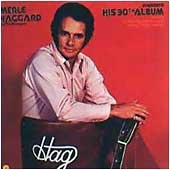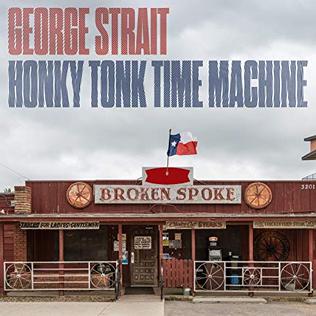A honky-tonk is a type of bar. The phrase may also refer to:
A honky-tonk is a type of bar. The phrase may also refer to:

A honky-tonk is both a bar that provides country music for the entertainment of its patrons and the style of music played in such establishments. It can also refer to the type of piano used to play such music. Bars of this kind are common in the South and Southwest United States. Many eminent country music artists, such as Jimmie Rodgers, Loretta Lynn, Patsy Cline, Ernest Tubb, Johnny Horton, and Merle Haggard, began their careers as amateur musicians in honky-tonks.
Black Rose or Black Roses may refer to:
Gary Ronnie Stewart was an American musician and songwriter, known for his distinctive vibrato voice and his outlaw country sound influenced by southern rock. At the height of his popularity in the mid-1970s, Time magazine described him as the "king of honkytonk." He had a series of country chart hits from the mid- to late 1970s, the biggest of which was "She's Actin' Single ", which topped the U.S. country singles chart in 1975.

Henry William Thompson was an American country music singer-songwriter and musician whose career spanned seven decades.
Honky Tonk Man may refer to:
Honky is a pejorative term used to refer to white people, predominantly heard in the United States.

Shadowland is the debut solo album by k.d. lang, released in 1988. The album included her collaboration with Kitty Wells, Loretta Lynn and Brenda Lee on "Honky Tonk Angels' Medley" and was produced by Owen Bradley, who produced Patsy Cline's best-known work.
When in Rome may refer to:

"Honky Tonk Women" is a song by the English rock band the Rolling Stones. It was released as a non-album single on 4 July 1969 in the United Kingdom, and a week later in the United States. It topped the charts in both nations. The song was on Rolling Stone's 500 Greatest Songs of All Time list, and was inducted into the Grammy Hall of Fame.
"Honky Tonk" is an instrumental written by Billy Butler, Bill Doggett, Clifford Scott, and Shep Shepherd. Doggett recorded it as a two-part single in 1956. It peaked at number two for three weeks on the Billboard Hot 100, and was the biggest R&B hit of the year, spending thirteen non-consecutive weeks at the top of the charts. "Honky Tonk" became Doggett's signature piece and a standard recorded by many other performers. This instrumental is noted for the Bass Guitar solo and the electric guitar solos in Part 1, while the tenor saxophone solo, which is first heard in Part 1, becomes dominant in Part 2. The handclaps are throughout the instrumental. Doggett's yells are heard a half dozen times. Doggett's electric organ is only heard in the final cadenza, in Part 2, right before the drummer concludes with the Cymbal crash.
"Shake, Rattle and Roll" is the rhythm and blues and rock and roll song.

Honky Tonk Heroes is a country music album by Waylon Jennings, released in 1973 on RCA Victor. With the exception of "We Had It All", all of the songs on the album were written or co-written by Billy Joe Shaver. The album is considered an important piece in the development of the outlaw sub-genre in country music as it revived the honky tonk music of Nashville and added elements of rock and roll to it.
Dudley "Big Tiny" Little, Jr. was an American musician who appeared on The Lawrence Welk Show from 1955 to 1959. His primary instrument was the piano.

Mark Nelson Chesnutt is an American country music singer and songwriter. Between 1990 and 1999, he had his greatest chart success recording for Universal Music Group Nashville's MCA and Decca branches, with a total of eight albums between those two labels. During this timespan, Chesnutt also charted twenty top-ten hits on the Billboard Hot Country Songs charts, of which eight reached number one: "Brother Jukebox", "I'll Think of Something", "It Sure Is Monday", "Almost Goodbye", "I Just Wanted You to Know", "Gonna Get a Life", "It's a Little Too Late", and a cover of Aerosmith's "I Don't Want to Miss a Thing". His first three albums for MCA along with a 1996 Greatest Hits package issued on Decca are all certified platinum by the Recording Industry Association of America (RIAA); 1994's What a Way to Live, also issued on Decca, is certified gold. After a self-titled album in 2002 on Columbia Records, Chesnutt has continued to record predominantly on independent labels.
Honky Tonk Angel may refer to:

"Why Baby Why" is a country music song co-written and originally recorded by George Jones. Released in late 1955 on Starday Records and produced by Starday co-founder and Jones' manager Pappy Daily, it peaked at 4 on the Billboard country charts that year. It was Jones' first chart single, following several unsuccessful singles released during the prior year on Starday.

Merle Haggard Presents His 30th Album is the seventeenth studio album by American country singer Merle Haggard and The Strangers, released in 1974. Contrary to the album's title, this was his 17th studio album; however, the number 30 included his six collaborative albums, three live albums, one 'live' gospel album, one Christmas album, and two greatest hits compilations up to that point.
"There's a Honky Tonk Angel " is a song best known for the 1974 recording by American country music artist Conway Twitty, who took it to number 1 on the Hot Country Singles chart. The song was written by Troy Seals and Denny Rice and originally released on Troy Seals' 1973 debut album Now Presenting Troy Seals.

The Rolling Stones in Mono is a box set by the English rock band the Rolling Stones, released by ABKCO Records in September 2016. It contains most of the group's British and American studio albums from the 1960s in mono format, on fifteen compact discs or sixteen vinyl records. All tracks were remastered using the Direct Stream Digital process by Bob Ludwig. The original recordings were produced by Andrew Loog Oldham, Jimmy Miller and the Rolling Stones.

Honky Tonk Time Machine is the thirtieth studio album by American country music artist George Strait. It was released on March 29, 2019, via MCA Nashville. The album's first single, "Every Little Honky Tonk Bar", was released to radio on February 11, 2019.